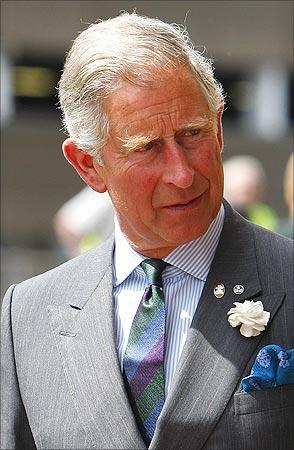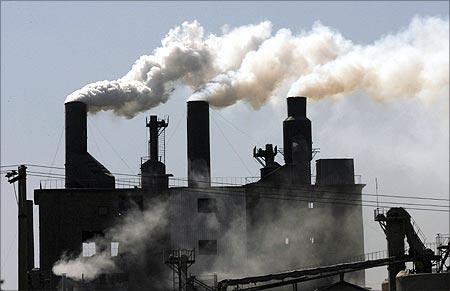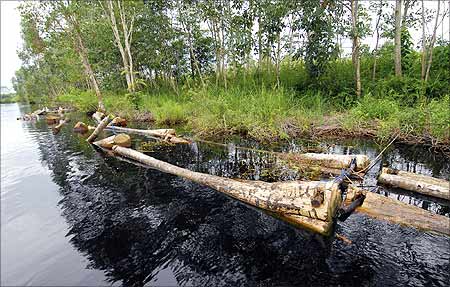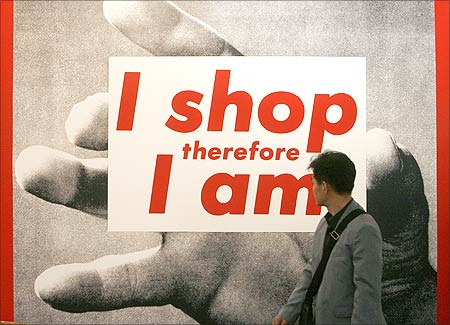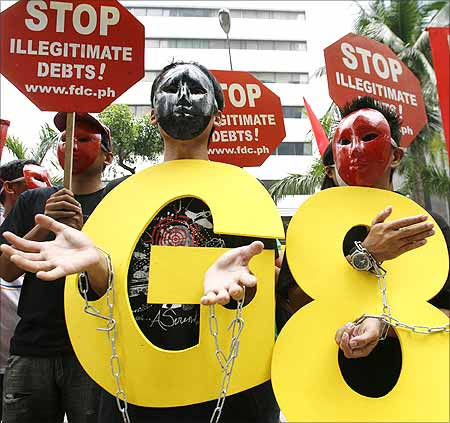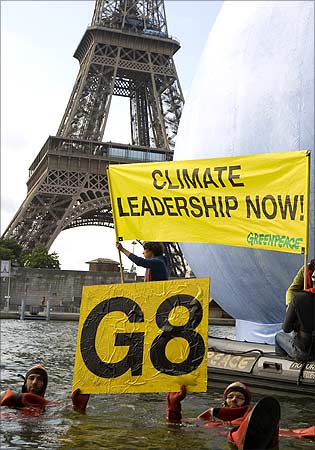 | « Back to article | Print this article |
We've just 96 months to save the world: Prince Charles
Capitalism is under attack from the monarchy, this time.
Britain's Prince Charles on Wednesday blasted capitalism and consumerism for having 'brought the world to the brink of economic and environmental doom.
The Prince of Wales in a grandstand speech, on his concerns for the future of the planet, said that that he had calculated that we have just 96 months (8 years) left to save the world from disaster.
Delivering the annual Richard Dimbleby lecture, Charles said that without 'coherent financial incentives and disincentives', we have just 96 months to avert irretrievable climate and ecosystem collapse, and all that goes with it.
We've just 96 months to save the world: Prince Charles
In a searing indictment on capitalist society, Prince Charles, the heir to the British throne, told an audience of industrialists and environmentalists at St James's Palace that we can no longer afford consumerism and that the 'age of convenience' was over.
The Prince, who has spoken passionately about the environment before, said that if the world failed to heed his warnings, then we all faced the 'nightmare that for so many of us now looms on the horizon'.
"We in the industrialised world have increased our consumption of the Earth's resources in the last thirty years to such an extent that, as a result, our collective demands on Nature's capacity for renewal are being exceeded annually by some 25 per cent.," he said.
We've just 96 months to save the world: Prince Charles
"On this basis, last year we had used up what we can safely take from Nature before the end of September. Between then and the New Year we were consuming capital as if it was income. And, as any investment advisor will tell you, confusing capital for income is simply not sustainable in the long-term," he added.
Charles went on to say: "What is more, countries that are undergoing rapid development are all assuming Western consumption patterns. By 2050 not only will there be nine billion people on the planet, but a far higher proportion than now will presumably have Western levels of consumption."
"Our current model of progress," he said, "was not designed, of course, to destroy the environment. We must remember that the ultimate source of all economic capital is Nature's capital. The true wealth of all nations comes from clean rivers, healthy soil and, most importantly of all, a rich biodiversity of life."
We've just 96 months to save the world: Prince Charles
"Ecosystem resilience leads to economic resilience," he added. "If we carry on destroying our marine and forest ecosystems as we are doing, then we will rob them of their natural resilience and so end up destroying our own."
"Facing the future, therefore, requires a shift from a reductive, mechanistic approach to one that is more balanced and integrated with Nature's complexity -- one that recognizes not just the build up of financial capital, but the equal importance of what we already have -- environmental capital and, crucially, what I might best call 'community capital'," he added.
Charles's speech was described as his first attempt to present a coherent philosophy in which he placed the threat to the environment in the context of a failing economic system.
We've just 96 months to save the world: Prince Charles
The Prince, who is advised by the leading environmentalists Jonathon Porritt and Tony Juniper, said that even the economist Adam Smith, father of modern capitalism, had been aware of the shortcomings of unfettered materialism.
According to Charles, the next generation will face a "living hell" unless governments urgently tackle climate change and stop plundering the Earth's natural resources.
"In failing the Earth, we are failing Humanity," the Prince said, drawing parallels with the global financial crisis.
We've just 96 months to save the world: Prince Charles
"But for all its achievements, our consumerist society comes at an enormous cost to the Earth and we must face up to the fact that the Earth cannot afford to support it," he added.
"Just as our banking sector is struggling with its debts; so Nature's life-support systems are failing to cope with the debts we have built up there too. If we don't face up to this, then Nature, the biggest bank of all, could go bust. And no amount of quantitative easing will revive it," he explained.
He highlighted that the dual challenge of an economic system with 'enormous shortcomings, together with an environmental crisis of climate change' threatened to 'engulf us all'.
